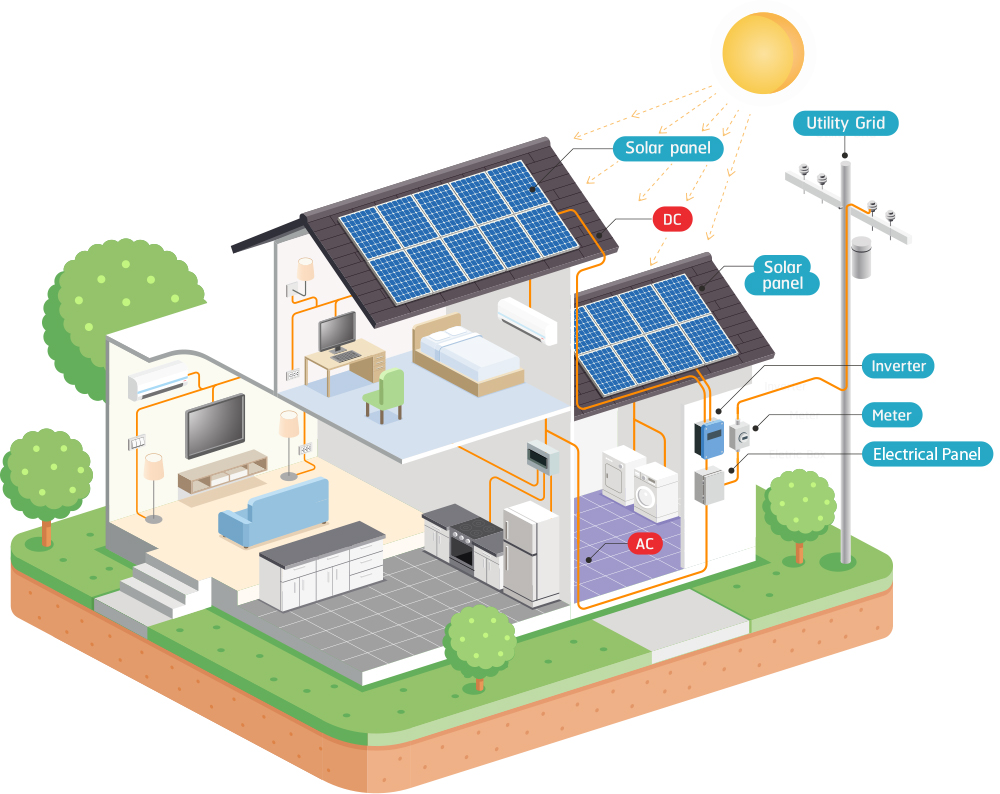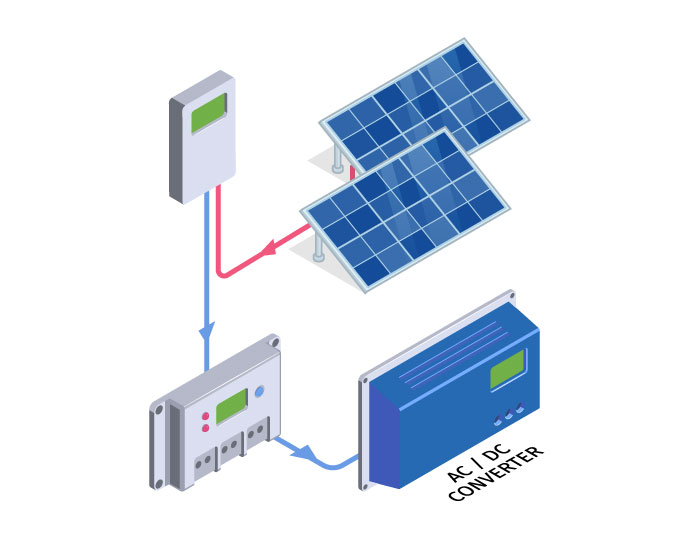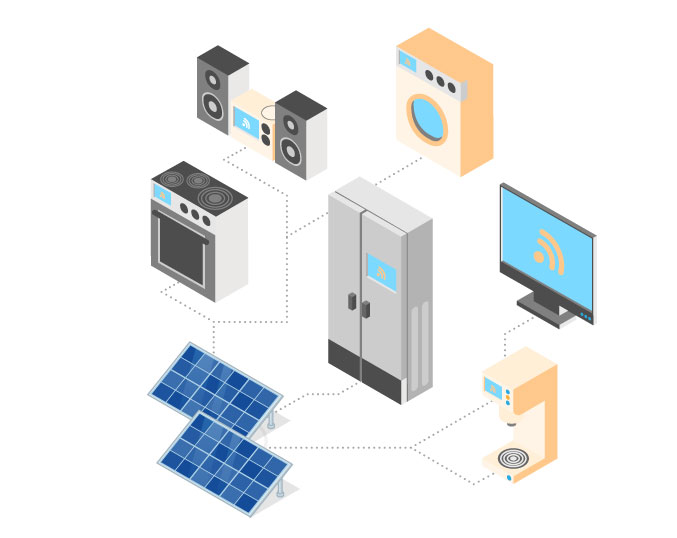Considering solar power?
As your local energy partner, we are here to help you meet your home energy goals. Connect with us to learn more about how a solar installation could impact your home and get answers to your home energy questions.
How solar works
Your questions answered
How we can help
Powering a Brighter Future
Home solar checklist
How does home solar really work?
Whether you are interested in mounting solar panels to your roof or would like to add ground-mounted solar to your property, the sunlight-to-electricity conversion process works the same:
Frequently asked questions
I'm interested in home solar. What's the first step I should take?
Your co-op can also provide you with all the information you need about rates and interconnection requirements so you can have an informed discussion with a solar installer. There are more than 100 electric utilities in North Carolina, and sometimes solar installers might miss facts and details specific to your co-op. The installer will need the correct information to provide you with an accurate financial overview.
Unfortunately, we’ve seen instances in our communities where co-op members have been misled and misinformed because of inaccurate information. Your co-op is here to be your energy partner throughout the process, helping you to arrive at a decision right for your home and personal goals.
Another thing we always recommend is to improve the energy efficiency of your home. A more efficient home stretches your energy dollar further, and you’ll recover the expense of your solar investment more quickly.
Ground-mounted or rooftop solar?
Ground-mounted and rooftop solar are both home solar solutions, and their differences are highlighted below for your consideration.
Ground-Mounted
- Can place the array in an optimal location.
- Easy to clean panels and make any needed repairs.
Rooftop
- Most commonly installed; does not require expansive amounts of land and eliminates risk of tampering.
- Typically, less expensive than ground-mounted arrays.
- Utilizes unused space.
If I add home solar, will I save on my electric bill?
Depending upon the size and efficiency of your system and home, most homeowners see savings on their electric bill. Some solar companies make claims that you’ll never have to pay an electric bill again, and we caution this is simply not true. Your home requires electricity even if the sun is not shining, including at night and on cloudy days, which means you will continue to draw electricity from the grid and be billed monthly based on your home energy use and any flat facilities charges.
Co-op members with home solar are still connected to the grid. Because co-ops are an at-cost, not-for-profit energy provider, standard charges that all members pay to ensure the reliability and safety of the electric grid for all will stay on your bill, no matter how much energy your home may produce. Without this structure, grid costs would unintentionally be shifted to members for whom home solar is out of reach for financial, geographic or other reasons.
Can I calculate my potential savings?
Yes! The U.S. Department of Energy has a great tool for providing cost estimates on home solar installations. Please keep in mind this is an estimate only; you will have a more accurate financial picture by working with your co-op and a professional solar installation company.
Are there incentives to help me pay for home solar?
Yes, there is a federal solar tax credit that allows you to deduct 30% of the cost of installing solar from your federal taxes for systems installed in 2022-2032. There is no cap on its value. These incentives decrease in 2033 and 2034. Learn more from the U.S. Department of Energy.

Connect with an energy expert
As your local energy partner, we are here to help you reach your energy goals. From increasing energy efficiency to interconnecting home solar panels, our energy experts can help you find the facts you need to make big energy decisions easy.
Powering a Brighter Future
Together with our members, Tri-County EMC is powering a brighter future for the people we serve and communities we share. Our innovation and actions are guided by our local roots, and we are focused on delivering value and expanding services to benefit our members. In this decade and beyond, we will continue our commitment to supporting our communities, and to providing reliable electricity at the lowest possible cost while also advancing the pursuit of responsible sustainability goals.
Home solar checklist
Conduct thorough research before investing in a home solar system and obtain more than one quote.
Ensure that your home is energy efficient. If savings are your goal, efficiency can be a wiser investment.
Understand how a home solar system interconnects with your energy co-op’s system – a call to your energy co-op early in the process is always a good idea.
Consult a tax professional if you’re considering any tax credits.
Estimate the potential for solar generation at your location using the PVWATTS calculator, a resource from the National Renewable Energy Laboratory and U.S. Department of Energy. Consider this data, as well as the cost of a home solar system, to better understand the economics.
Ask your insurance agency how a solar installation may impact your homeowners’ coverage. Systems such as solar panel carports or ground-mounted panels may require an add-on or separate policy.
Follow all safety precautions.
Choose a reputable contractor/installer – check reviews and ask for references. Make sure they are licensed, insured and bonded for the work they will perform.
Maintain good records, including financial records and notes from conversations.



